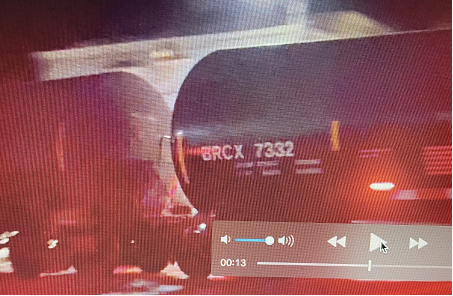NY State Officially Prohibits High-Volume Hydraulic Fracturing
July 2, 2015Sing for the Silenced
July 14, 2015By Richard A. Oppel Jr., New York Times, June 30, 2015
The Oklahoma Supreme Court ruled Tuesday that homeowners who have sustained injuries or property damage from rampant earthquakes they say are caused by oil and gas operations can sue for damages in state trial courts, rejecting efforts by the industry to block such lawsuits from being decided by juries and judges.
The case has been closely watched both by the energy industry and by fracking opponents across the United States, and the 7-to-0 ruling opens the door for homeowners in a state racked by earthquakes to pursue oil and gas companies for temblor-related damage.
It is the first time the court has specifically addressed whether plaintiffs could sue for damage that experts believe is typically caused by massive amounts of wastewater generated by oil and gas drilling — often involving hydraulic fracturing, or fracking — that are ultimately injected into underground disposal reservoirs near fault zones.
While such quakes rattle other places, Oklahoma, where oil and gas companies have outsize economic and political influence, has faced the brunt of them in recent years: In the past, the state typically had just one or two quakes of magnitude 3.0 or higher per year. But during a boom in fracking over the past decade, the number has steadily and sharply risen, to 585 last year, more than in any other state except Alaska.
This year, Oklahoma is on a pace for 1,100 quakes of magnitude 3.0 or higher.
Industry lawyers had argued that state law prevented trial courts from hearing lawsuits over wastewater-related quake damage, and that a state regulatory agency, the Corporation Commission, was the proper venue for such disputes.
But Scott Poynter, a Little Rock, Ark., lawyer for two Oklahoma homeowners who sustained severe quake damage in 2011, argued that the industry was just trying to keep their lawsuits from being decided by jurors who might award monetary damages.
Several of the worst quakes in the state’s history hit the tiny town of Prague in November 2011, including one that registered 5.7 and another that registered 5.0, which caused the tall chimney of Sandra Ladra’s home to crumble, sending down large pieces of stone that struck her as she sat in a recliner. Ms. Ladra suffered significant injuries to her knees and legs.
She filed suit against two companies that operate nearby wastewater disposal wells that she believed had caused the quakes. In October, however, lawyers for the well operators persuaded a state judge to dismiss the lawsuit, arguing that state law requires disputes to go before the Corporation Commission. Mr. Poynter, Ms. Ladra’s lawyer, appealed to the State Supreme Court, leading to Tuesday’s ruling.
Mr. Poynter said he had been investigating damage on behalf of clients in other areas of the state where “there has been a lot of shaking going on,” including Guthrie, Cushing and Stillwater. He believes Tuesday’s ruling may embolden more property owners to sue.
“People have been waiting on this decision,” he said, adding that he would proceed with Ms. Ladra’s lawsuit as well as with a separate class-action lawsuit related to the 2011 quakes.
The State Supreme Court did not take a position on Ms. Ladra’s underlying argument that wastewater disposal wells caused the quake that injured her and damaged her home, though the justices did note the “dramatic increase in the frequency and severity of earthquakes” in the state.
Explaining their ruling, the justices cited “the long-held rule that district courts have exclusive jurisdiction over private tort actions when regulated oil and gas operations are at issue.”
Lawyers for the oil and gas companies sued by Ms. Ladra — the Spess Oil Company and New Dominion — did not return phone calls seeking comment on Tuesday. But during a court hearing in October, they warned a state judge that juries siding with plaintiffs in cases like this one would invite economic catastrophe.
If the companies are held liable at trial, “these wells will become economic and legal liability pariahs,” said Robert G. Gum, a lawyer for New Dominion. “They will be shut down.”
When the lawsuits were filed, top officials in Oklahoma were steadfastly insisting that the link between quakes and disposal wells was not clear.
But in April, state leaders did an unexpected about-face and embraced the scientific consensus. They even created a website that cited a determination by the state’s geological survey that “the majority of recent earthquakes in central and north-central Oklahoma are very likely triggered” by wastewater disposal wells.
Many in the industry, however, maintain that claims of a clear connection require more study.
According to Mr. Poynter, industry officials have been busy seeking protections from the Oklahoma Legislature, successfully winning passage of a law that restricts municipalities from regulating oil and gas wells within their jurisdiction.
He also said the industry had tried — but so far failed — to win passage of another law requiring a state-approved expert to first certify any lawsuits over wastewater-induced quakes.
“In other words, it was going to be the industry picking the experts,” Mr. Poynter said, calling it one of a number of proposals “designed to stymie our litigation or make it as difficult as possible for homeowners with earthquake damage to bring suit.”



